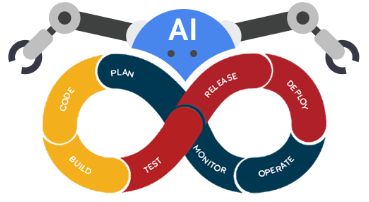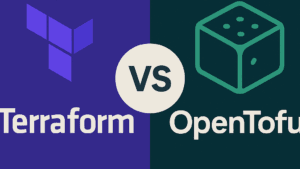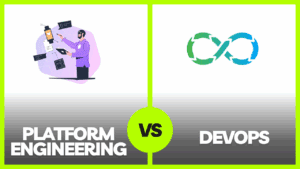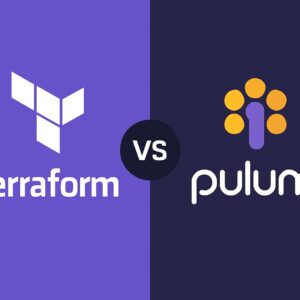It’s kind of funny to those of us who’ve been around the DevOps block for a while how AI has this new buzz around it, and the use of it in DevOps is being heralded by some as a new thing. In fact, at the recent Kubecon event in Amsterdam that we attended, there were a number of exhibitors of new solutions using AI, all heralding them as cutting edge.
The truth is though, the deployment of AI in the field of DevOps has already been revolutionizing the way we approach software development and deployment for several years now. As software demands increase, the need for scalable and efficient solutions becomes more prevalent. AI has long proven to be the catalyst for refining DevOps as a process, allowing developers to streamline and expedite their workflows for increased productivity.
One area where AI has been used for a long time is in log analytics. Tools such as Splunk and Sumologic analyze terabytes of logs to highlight important events, detect anomalies and predict future performance. This process was previously conducted manually, which was time-consuming and could be prone to errors. AI enables a more robust analysis and allows for faster problem detection, a crucial aspect of DevOps.
Another significant area where AI has made a considerable impact is in Continuous Improvement and Continuous Deployment (CI/CD). AI algorithms and machine learning models can automate tasks and identify new areas of improvement. For example, GitHub’s Actions provides automated workflows to support the entire CI/CD process. It enforces high standards for code quality, detects issues in pull requests and provides test coverage feedback. It is easy to take this approach for granted, but without the intervention of AI, manual verification of code changes across all branches could be very time-consuming.
Chatbots have long been utilized as customer support, but newer AI-assisted systems are now used in DevOps to simulate conversations with tools and systems. With ChatOps, developers integrate tools into chat rooms where they can interact with other team members and bots. The interactions include testing, deployment, system configuration and more. These interactions are more seamless, intuitive, and make it easier to address issues in real-time.
Moreover, AI-enhanced security systems are becoming commonplace in DevOps. AI algorithms can detect security threats and provide the necessary measures to counter attacks, making defenses stronger than ever before. For example, a security system that utilizes AI in DevOps can generate rules that keep out unwanted traffic. It can monitor all incoming and outgoing traffic and recognize traffic patterns that do not match predefined behaviors. The system can then either block or quarantine those patterns and cut off the attacker’s access.
In general, it’s important to note that AI in DevOps is not meant to replace human intelligence but rather enhance it. By automating workflows, increasing accuracy, and improving real-time collaboration, AI assists developers in making more well-informed decisions, which is essential in driving innovation and staying ahead in increasingly complex software environments.
In fact, one of our recent clients was a promising AI startup that was looking for ways to expedite their software development and enhance their DevOps practices.
They were facing considerable challenges in software development, particularly in testing and deployment. Their current infrastructure was stalling the process and making it difficult to innovate and release timely updates.
The SlickFinch team evaluated their existing infrastructure to identify bottlenecks and gaps in their systems. After a thorough analysis, we proposed an AI-based DevOps solution that would automate and streamline the entire software development lifecycle.
The solution included an AI-powered testing and deployment framework that would reduce manual interventions and redundancies in the current system, ensuring faster and more efficient testing processes. It also included an AI-based log analytics tool that would highlight critical events and potential issues, enabling faster problem detection and resolution.
The AI-powered DevOps system provided continuous improvement, allowing the startup to rapidly identify areas for improvement, thereby speeding up software releases. Furthermore, the tool’s security measures kept the data safe from outside threats.
With SlickFinch’s AI-based DevOps solution, the AI startup was able to scale operations quickly and efficiently, without compromising quality. The new DevOps system enabled the startup to focus on innovating and building their next-generation AI products while the infrastructure took care of the testing and deployment activities.
The results were remarkable — the AI startup achieved a 50% reduction in software testing time, and development cycles were shortened by up to 30%. Moreover, the log analytics tool provided an improved understanding of the software’s performance, thereby increasing the overall ROI.
SlickFinch’s AI-based DevOps solution enabled the AI startup to stay ahead of the competition and focus on delivering innovative AI solutions to its customers. As a result, the startup went on to secure additional funding from investors, expanding its operations exponentially.
So while the use of AI is not really a new thing in the DevOps world, the advancements and improvements in it continue to offer new possibilities for companies to use it to further streamline processes, improve ROI and drive innovation of their software products. At SlickFinch, we’ve long been advocates of AI-powered DevOps solutions and we continue to embrace the newer ones in order to help our clients achieve success.
If you’d like to see how we could help you leverage the power of AI in your workflows to make more informed decisions resulting in faster deployments, quicker resolution of issues and enhanced security, then reach out to us today for a chat, we’d love to hear about your challenges.
#AIinDevOps #DevOpsAutomation #ContinuousImprovement #ChatOps #SecurityEnhancement #DevOps




